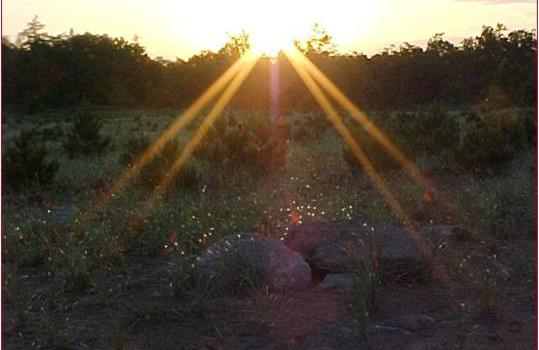
Professor Anthony Aveni recently co-hosted a symposium on Native American ceremonial stone landscapes.
Using the night sky to explain the culture of different societies is a practice familiar to . In early December, the distinguished and professor co-hosted a symposium intended to spark a dialogue about Native American sacred sites and exploring their connections to cosmic events.
Stones and Stars: Ceremonial Stone Landscapes of Northeastern North America, co-organized by , cultural resources manager of Fort Drum, N.Y., and held at the , was the first meeting of its kind.
Tribal elders came from Connecticut, Massachusetts, Rhode Island, and Canada. The oral tradition of using the night sky to tell stories allowed them to explain to attendees why their landscapes matter to their cultures. Typically at these sites, stones aligned with constellations and stars in the sky allow them to track seasons, harvest patterns, and sunrise and sunset throughout the calendar year.
They discussed specific sites including Black Plain Hill in Rhode Island and Fort Drum in New York. The symposium brought together Native Americans, government officials, and 51·çÁ÷ community members hoping to identify the value of these locations for preservation purposes.
Aveni noted that for these Native American tribes, “the sky is your storyboard — the opportunity to tell your community’s stories and explain your way of life.”
, who runs the visualization lab, introduced the tribal representatives to the revolutionary technology that allowed them to see the sky and its constellations on any day and at any time for their landscapes. He navigated the sky in the dome as they told their stories.
Regional officials responsible for site preservation on behalf of the government also discussed the features of ceremonial landscapes, how to identify them in their regional context, and how to effectively preserve these sites in the Northeast.
Sponsored by 51·çÁ÷’s , the symposium represented educational outreach efforts from 51·çÁ÷ departments highlighting a strong tie between regional tribes and the university.
The desire for future collaboration is apparent. As Rush and Aveni noted to Doug Harris, deputy historic preservation officer of the , “our dome is yours.”
